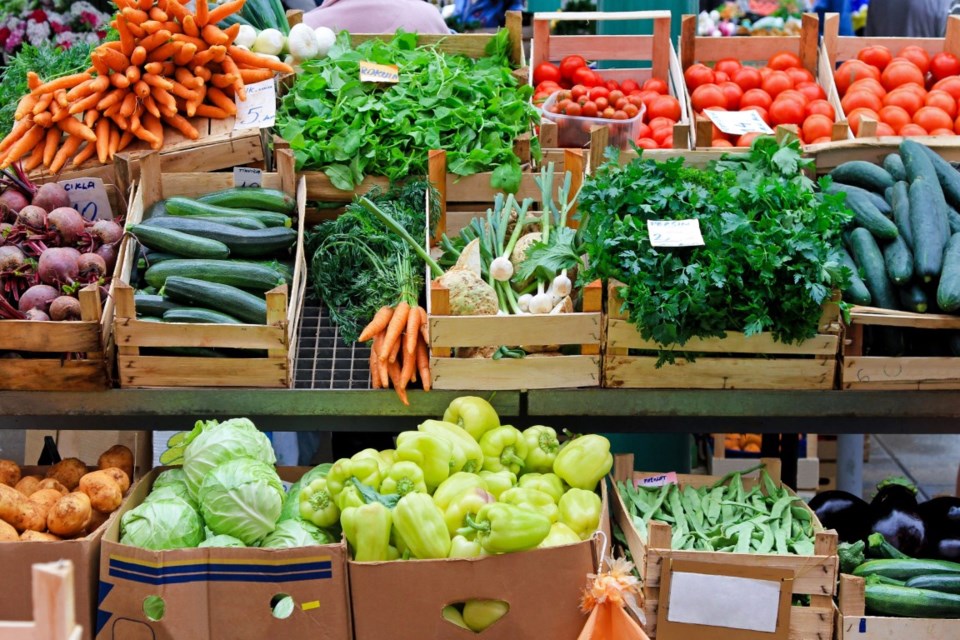Prime Minister Justin Trudeau is reassuring a hungry world he personally will “drive action on food security” while Canadian farmers will put food on their tables. But back home his government makes pronouncements that are the policy equivalent of deflating the tires on tractors across Canada.
The federal government’s taxes and regulations are driving up costs for both farmers and the families who buy the food they produce. Food prices were up 10 per cent in July, the highest increase in more than 40 years.
That wasn’t mainly due to the carbon tax but at a time when prices are hitting heights not seen in four decades the carbon tax hits Canadians at the kitchen table as it drives up costs for farmers. Ottawa claims limited exemptions protect farmers from the carbon tax. But numbers from the Parliamentary Budget Office show the federal carbon tax on propane and natural gas could cost farmers another $184 million per year by 2030.
This is typical of the dissonance between government claims and reality. Rather than making families better off, a PBO study released in March showed, the carbon tax’s combined fiscal and economic effects will cost the average household between $299 (in Manitoba) and $671 (in Alberta) this year even after the rebates.
As the feds continue raising the carbon tax from 11 cents per litre of gas today to nearly 40 cents per litre by 2030, it will cost those average households a total of between $6,400 and $13,000 over the next eight years.
Worse, there’s a second carbon tax coming. Buried within the regulatory impact assessment of the so-called clean fuel regulations (at Table 23) is the news that according to economic estimates it will add up to another 13 cents per litre at the pumps. There are no rebates. And there are no farm exemptions. The second carbon tax will have nothing but bills for everyone.
Meanwhile, modern Western Canadian farming is a carbon sink, where the agriculture sector removes a net 33 million metric tonnes of carbon dioxide equivalent per year. That’s like removing over seven million cars a year from the road.
As if driving up food prices with the carbon tax on farmers weren’t enough, Ottawa is now planning to further regulate fertilizer use. If its fertilizer emissions reduction target leads to hard reductions in nitrogen use, farmers won’t be able to use enough fertilizer and yields will shrink. When yields shrink, there’s less food and the food there is costs more.
It’s odd. At the Commonwealth Heads of Government Conference in June, the prime minister lamented “the increase in fertilizer prices caused by the war [in Ukraine]” because that’s “making the food crisis worse.” Yet his own policies are adding to the problem. Reports from the Western Canadian Wheat Growers Association and Fertilizer Canada estimate the losses in crop yields due to fertilizer cuts will be in the billions of dollars. Less food grown on the farm means higher prices on grocery store shelves.
This punishing policy ignores the fact that farmers are already implementing world-leading sustainable fertilizer practices and Canadian businesses are using world-class nitrogen production practices. Moreover, even the government admits that Canada accounts for only “approximately one per cent of global agricultural emissions.”
While Ottawa tightens the screws on Canadian farmers, it wrings its hands on behalf of the hungry and pontificates about putting food on their plates. In a Joint Declaration of Agriculture Exporters in June it said: “High energy and fertilizer prices are an additional constraint … increasing world food prices for consumers, further exacerbating global food insecurity.” And in June the prime minister joined G7 leaders to say they would “spare no effort to increase global food and nutrition security” — except, apparently, by letting farmers get on with the job in the best ways they know how.
As most Canadians are stocking up on school-lunch groceries, Prairie farmers are getting up before dawn and working until after dark to get the harvest in the bin. They’ll overcome everything from bad weather to shortages of machinery parts. Farmers are on the frontline fighting global food insecurity.
It would be nice if the prime minister could say thanks or even lend a hand but farmers would settle for a lot less: Just get soaring taxes and crippling regulations out of the way.
Robin Speer is Prairie director of the Canadian Taxpayers Federation and Gunter Jochum is president of the Western Canadian Wheat Growers Association.




